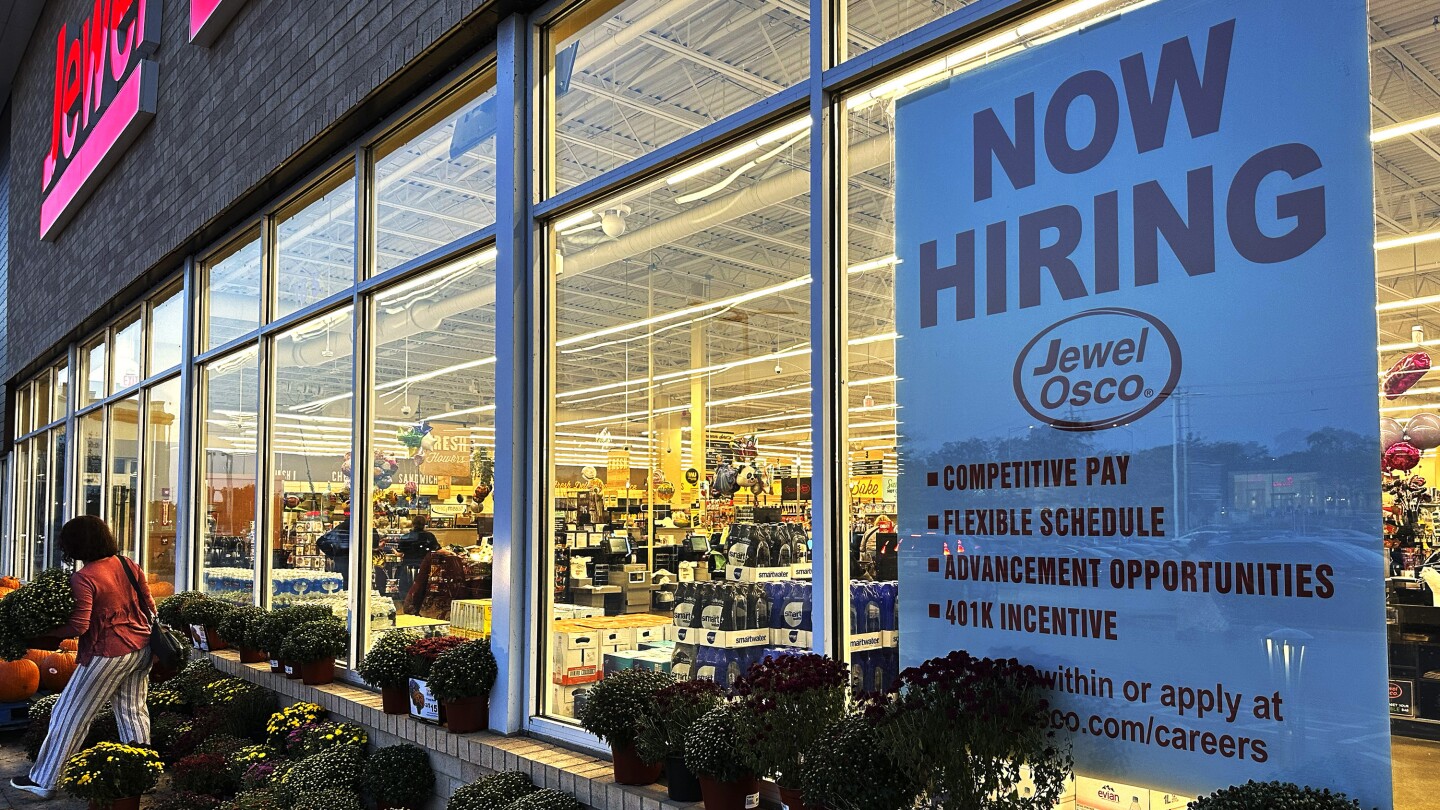NEW YORK (AP) — Most business economists think the U.S. economy could avoid a recession next year, even if the job market ends up weakening under the weight of high interest rates, according to a survey released Monday.
Only 24% of economists surveyed by the National Association for Business Economics said they see a recession in 2024 as more likely than not. The 38 surveyed economists come from such organizations as Morgan Stanley, the University of Arkansas and Nationwide.
Such predictions imply the belief that the Federal Reserve can pull off the delicate balancing act of slowing the economy just enough through high interest rates to get inflation under control, without snuffing out its growth completely.
…
High rates work to slow inflation by making borrowing more expensive and hurting prices for stocks and other investments. The combination typically slows spending and starves inflation of its fuel. So far, the job market has remained remarkably solid despite high interest rates, and the unemployment rate sat at a low 3.9% in October.



The whole point is on average people haven’t lost any ground cause compared to before the pandemic! None of these articles talk about the 20% increase in wages over this time, just the price increases. That’s wages per hour increasing by 20% mind you, not people taking up additional jobs.
The ap has just picked a couple of the highest ones out of the entire index. Read the whole article. Not all the day to day essentials have increased that much. Average them all together and you get 20% increased cost of living over the last 4 years. Prices are 20% higher on average before the pandemic. Wages are also 20% higher on average. So real buying power is about where it was before the pandemic on average. Inflation month to month is barely even moving anymore, prices were unchanged September to October. Wages are increasing faster than inflation right now so things will continue to improve. But people aren’t walking around with their pay stubs from 2019 and 2023 while in the supermarket going, oh milk increased in price 20% over 4 years but it looks like my wage did to. People are psychologically hung up on the high price they see every day. And everytime we have a bird flu epidemic wiping out tens of millions of chickens in our horrible factory farms keeping things like eggs artificially cheap, reporters are right there ready to write sensational headlines and inflame people even more. There’s essentially nothing left to do from an inflation perspective at this point anymore, except keeping unemployment low and labor demand high so wage increases can continue and real wages can increase.
Real wages December 2019 (meaning wages in relation to inflation anchored to 1982-1984 dollars): https://stats.bls.gov/news.release/archives/realer_01142020.pdf
Real wages October 2023: https://www.bls.gov/news.release/pdf/realer.pdf
If you look you’ll note they are higher now than then. Wage increases have compensated for inflation. But for the media “inflation back to normal slow steady pace, wage increases over the last four years have compensated, wages continue out pace inflation currently” just isn’t a very attention grabbing headline. Media will always be biased toward sensationalism.